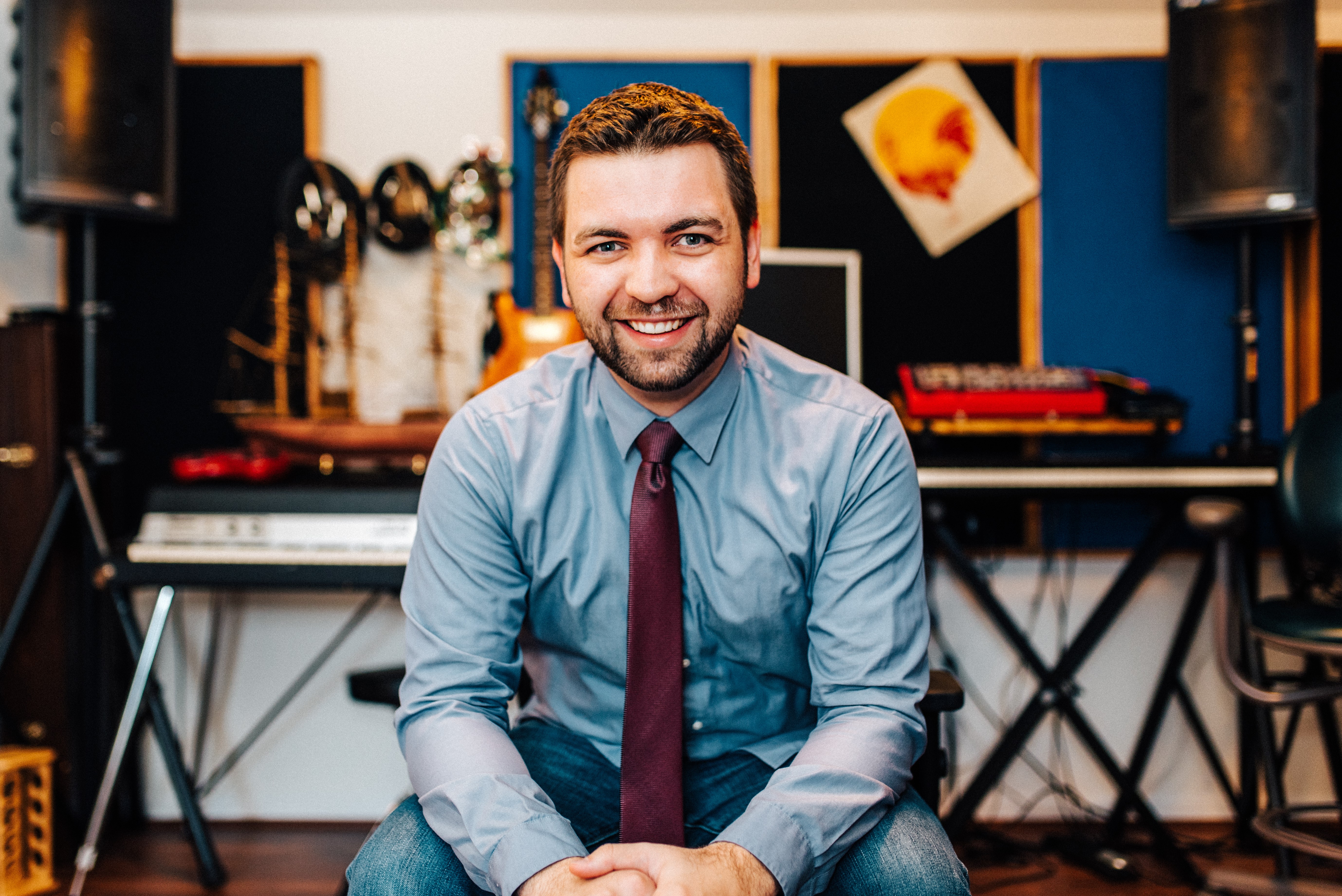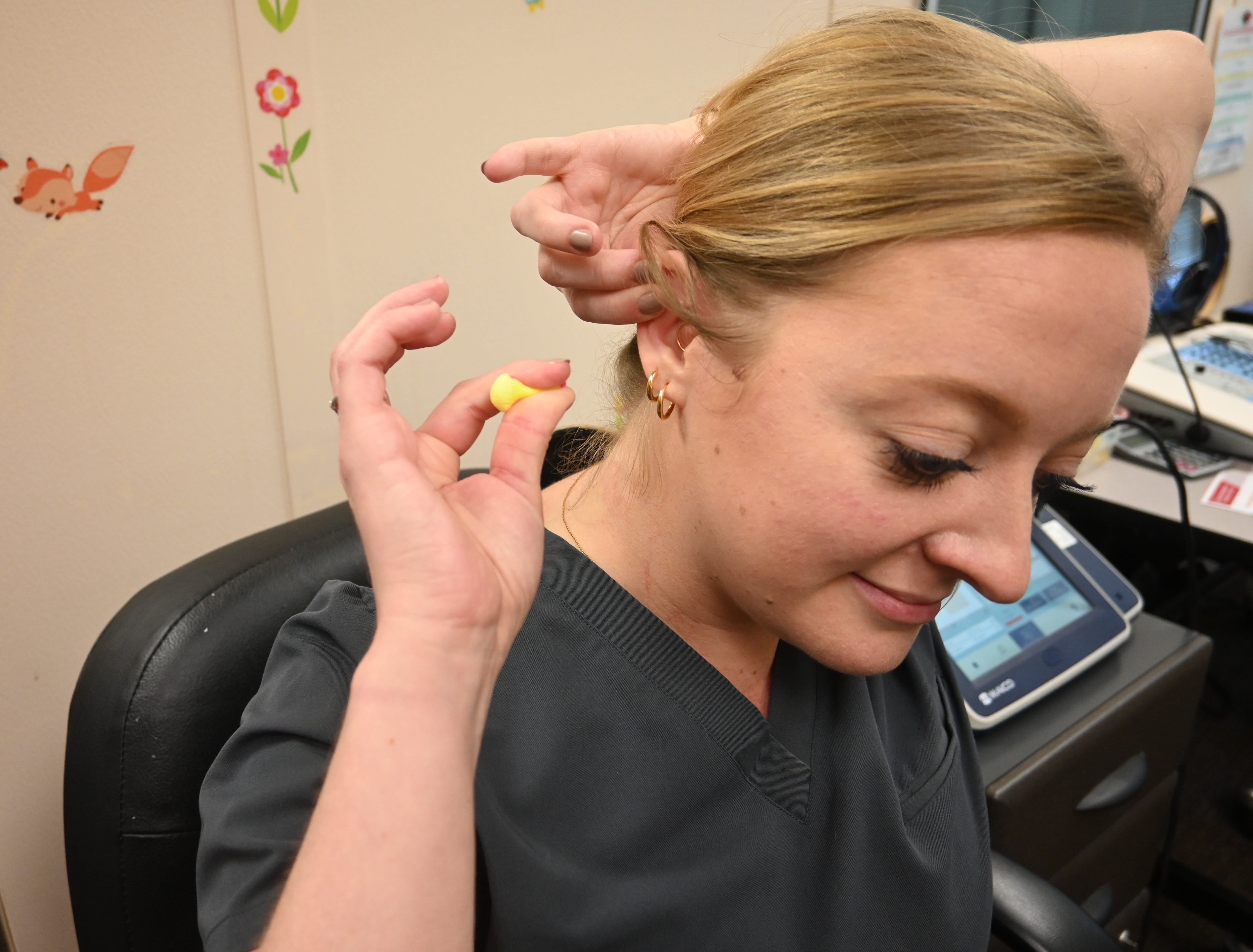Listen to the Music, But Do it Safely
Music is all around us. It plays in the car, in stores, at gatherings, and in many more places. Listening to music is a part of the daily routine for millions of people. With music being a big part of our lives, it’s important we remember to be careful to avoid affecting our ear health.
 Dr. Frank Wartinger is incredibly passionate about this topic. He is a musician and a Doctor of Audiology graduate from the Osborne College of Audiology at Salus University, on what is now Drexel University’s Elkins Park Campus.
Dr. Frank Wartinger is incredibly passionate about this topic. He is a musician and a Doctor of Audiology graduate from the Osborne College of Audiology at Salus University, on what is now Drexel University’s Elkins Park Campus.
“Listening to music is one of the greatest pleasures in life, but it can cause damage to your delicate inner ear structures if you listen too loudly or too long,” he said. “Much like the risk of skin damage from sun exposure, the risk of hearing injuries increases with higher intensity sound and longer duration listening. Since hearing loss from sound exposure is permanent, it is important to take steps to avoid injury early and consistently.”
A few steps he recommends include:
- Take control over the volume settings (such as when listening to a personal music player or television), simply turn down the level to a reasonable level. If you can easily have a conversation over the sound without shouting, then it is likely at a safe level.
- If you don’t have control over the sound level (such as at a concert, sporting event, or when around heavy machinery), then you can distance yourself from the sound source. Avoid standing directly in front of the speakers at events with sound systems, and move away from loud construction and transportation noises, if possible.
- If you don’t have control over the sound levels, but you cannot distance yourself (such as when operating power tools, exposed to sounds at work, attending a public event you cannot leave, or playing a musical instrument), you can wear hearing protection devices. There are many types available for different settings and to fit each individual’s ear shape, so select one that is appropriate and comfortable. If you need assistance in making a selection, you can speak with an audiologist at the Pennsylvania Ear Institute.
- Limit the duration of time when you’re listening to loud music and sounds. You can set a time limit and take periodic quiet listening breaks to reduce the exposure risk.
 It’s important, Dr. Wartinger said, to raise awareness of the dangers of listening to music without taking precautions. He believes the most effective way to raise awareness about how safe listening practices is by introducing hearing health and prevention to children early on, empowering them to protect their ears and develop healthy habits from a young age.
It’s important, Dr. Wartinger said, to raise awareness of the dangers of listening to music without taking precautions. He believes the most effective way to raise awareness about how safe listening practices is by introducing hearing health and prevention to children early on, empowering them to protect their ears and develop healthy habits from a young age.
Concerts are full of fun times and great memories. But they can be very harmful when it comes to ear health. The most effective way to protect our hearing while enjoying a concert is to wear earplugs. Disposable foam earplugs are incredibly inexpensive and very common. There are also filtered or concert earplugs specifically made for music listening. They’re more expensive, costing around $15 to $30. One final option is earmuffs, which are less commonly worn at concerts but are ideal for children. If you are concerned about the loudness at concerts, there are some apps now that are free for most smartphones that are fairly accurate as sound level meters.
If you experience symptoms of hearing loss or discomfort, schedule an appointment with one of the Pennsylvania Ear Institute (PEI) audiologists today by calling 215.780.3180.